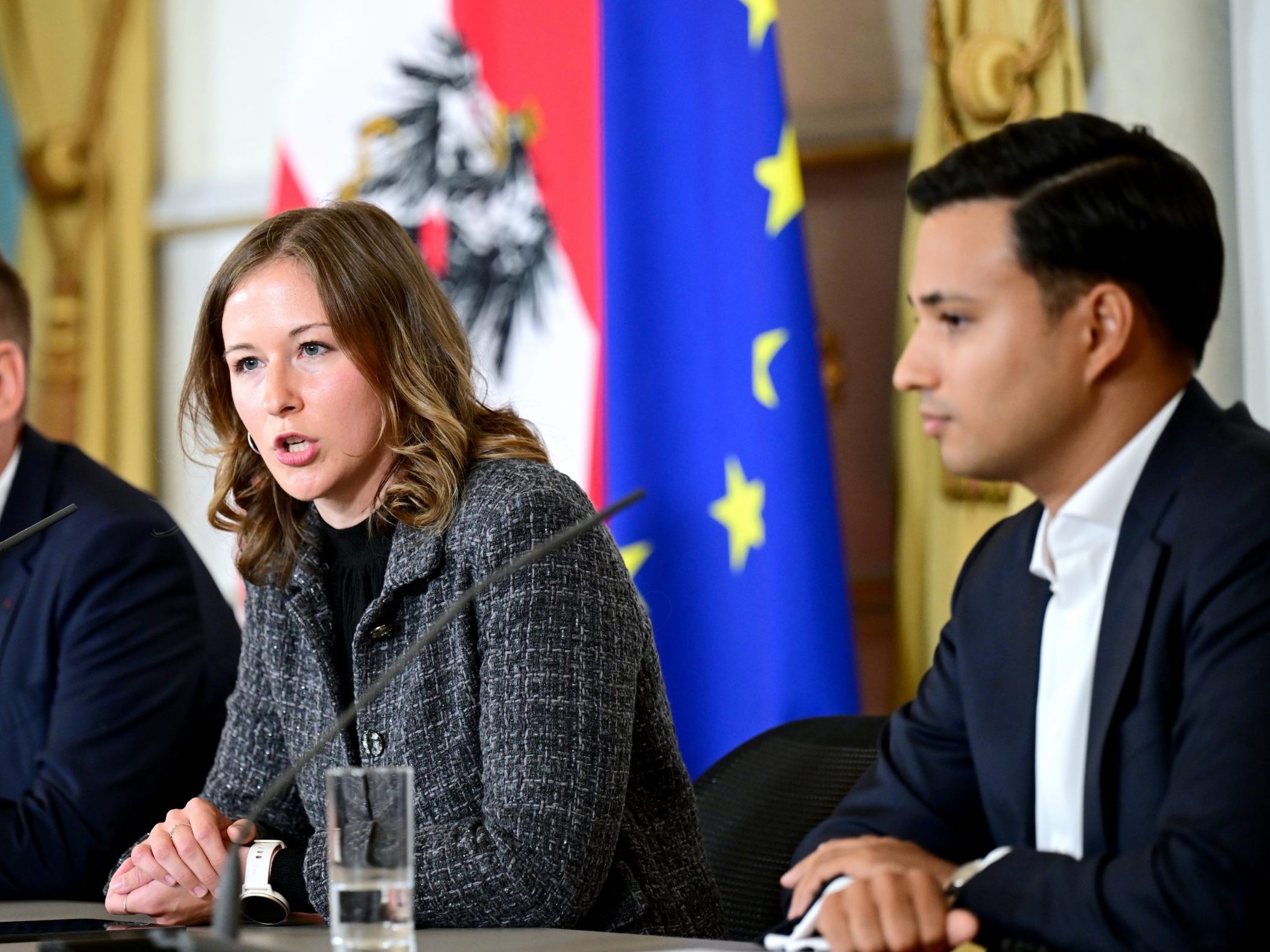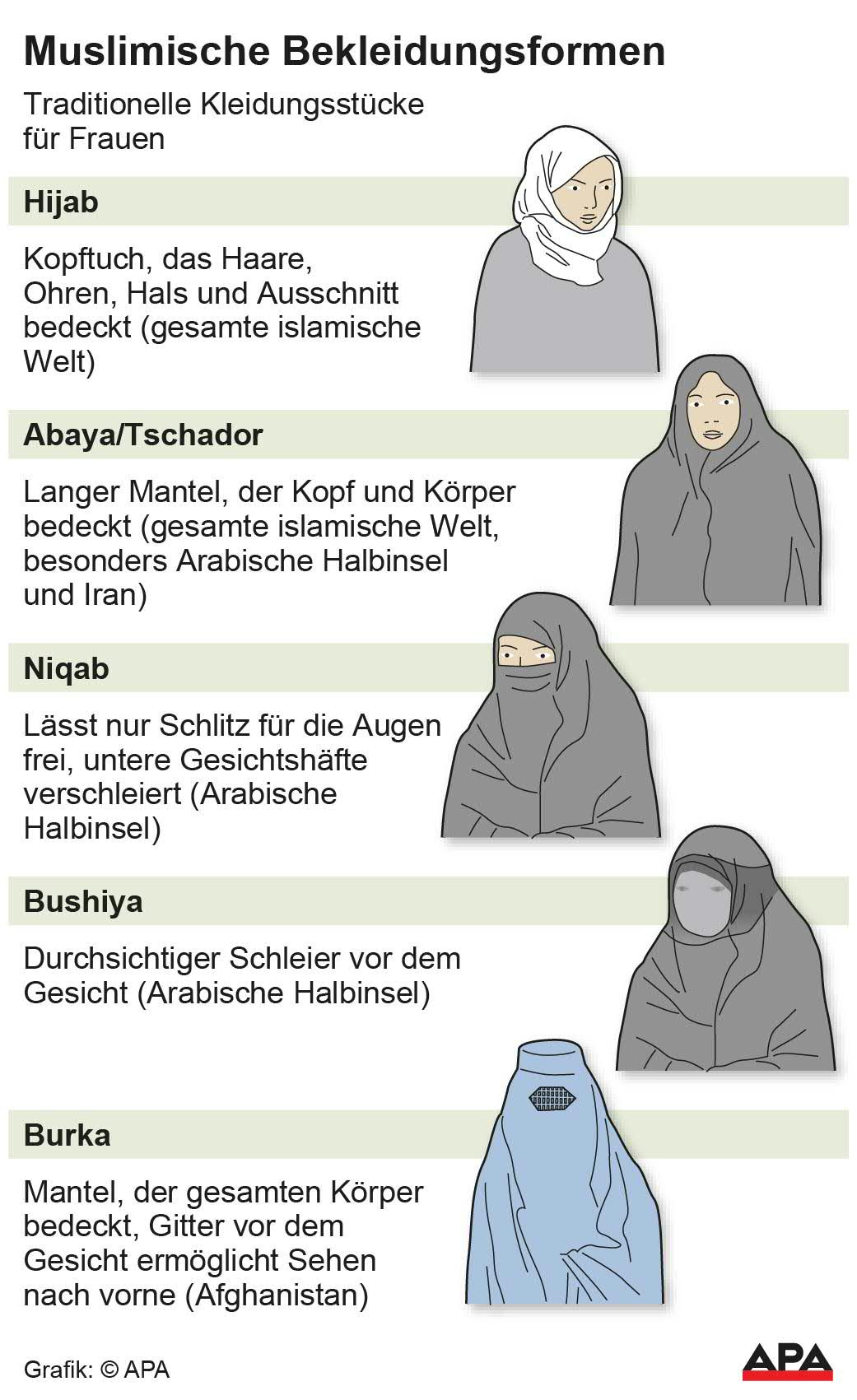Agreement Reached on Headscarf Ban for Under-14s

The three-party coalition is, as announced, initiating a headscarf ban for underage girls in schools. A corresponding draft law will be reviewed on Wednesday, as Integration Minister Claudia Plakolm (ÖVP) announced after the cabinet meeting. According to this, wearing the headscarf will be prohibited in both public and private schools until the completion of the 14th year of life.
Headscarf Ban: "Sign of Oppression"
"The children's headscarf restricts the visibility and freedom of girls, making it clearly a sign of oppression," Plakolm explained in the press foyer. The initiative, which targets the Muslim headscarf, is justified by the government with the welfare of the child: "Underage minor girls should be protected from segregation and oppression," it states in the cabinet presentation. According to the draft law, "wearing a headscarf that covers the head as an expression of cultural behavioral obligation" is prohibited for female students in preschool and the first to eighth grades - both during lessons and at school-related events.

In case of violations, there will be a graduated system: Initially, the school administration should seek a conversation with the student, and at the same time, an information letter will be sent to the guardians. If a second conversation, this time also involving the parents, does not bear fruit, the education directorate will be involved. In the extreme case, administrative penalties are provided with fines between 150 and 1,000 euros or a substitute imprisonment of 14 days.
Headscarf Ban Overturned in 2020
This is already the second attempt for a legal headscarf ban. In 2020, the Constitutional Court (VfGH) overturned a headscarf ban at elementary schools decided by the ÖVP-FPÖ government under Sebastian Kurz (ÖVP) in 2019. The regulation only targeted Muslims, which contradicted the state's requirement for religious neutrality, criticized the VfGH.
To address the concerns of the VfGH, accompanying measures are now being decided, aimed at empowering girls, but also actively involving parents, teachers, boys, and the Islamic Religious Community. For example, targeted work with boys and men is planned to raise awareness of equality and self-determination. Reference is also made to a study from France, which found that a ban introduced there in 1994 did not lead to the withdrawal of Muslim girls from the education system, but rather to an improvement in their academic performance and had an integration-promoting effect.
Amendment of the School Education and Private School Act for Headscarf Ban
Efforts have been made to address all concerns of the VfGH, emphasized NEOS parliamentary group leader Yannik Shetty. Since 2019, when the NEOS still voted against the headscarf ban, Austria has changed. "Unfortunately, it is no longer a marginal phenomenon," said Shetty. "The headscarf is not a neutral piece of clothing," but is a symbol of early sexualization and the devaluation of girls.
"We do not take this debate lightly, because of course it involves interventions in personal freedoms," said SPÖ club chairman Philip Kucher. It is about enabling all children in Austria to have the same opportunities. Because there is pressure on girls, mostly from fathers, brothers, and peers, to wear the headscarf, Kucher said.
The headscarf ban is to be anchored through an amendment to the School Education Act and the Private School Act. A six-week review is planned. The law is intended to come into force in the second semester according to the government's wishes.
Constitutional Expert Skeptical, Protest from IGGÖ
Constitutional expert Heinz Mayer expressed skepticism. He considers a constitutionally compliant implementation of the headscarf ban to be difficult, as he explained on the sidelines of a press conference. "The Constitutional Court set very narrow limits in 2020. It is about the oppression of girls, and the Constitutional Court rightly said, why not target the oppressors? Why target the girls?" He considers fines of 1,000 euros to be a bad idea. "The headscarf is a symbol, but the (ban, note) does not combat the cause."
Protest came from the Islamic Religious Community in Austria (IGGÖ). The headscarf ban violates fundamental rights and divides society, they criticized. The Constitutional Court has unequivocally stated that such a ban is unconstitutional as it specifically targets a religious minority and violates the principle of equality. "Instead of empowering children, they are stigmatized and marginalized." They will have the constitutionality reviewed but remain open to dialogue, said the IGGÖ.
The top teachers' representative Paul Kimberger (FCG) does not reject the headscarf ban as an "ultima ratio." Because "basically" it must be said that "all constraints to which children are exposed are developmental inhibitors," and these are "unacceptable," Kimberger explained to the APA. In contact and discussions with parents, educators sometimes reach their limits. In this case, the headscarf ban could represent an "ultima ratio." Kimberger showed opposition to the idea that schools must administratively enforce this: "The school or district administrative authority will have to do that." The following discussions must now show this once the "draft is on the table."
FPÖ and Greens Support Headscarf Ban
Unusual support for the government measure came from the opposition. However, the headscarf ban for those under 14 can "only be a very first step," said FPÖ General Secretary Michael Schnedlitz, calling for a general headscarf ban in schools for older students, teachers, and other caregivers, as well as a ban law against political Islam. That children are forced to wear a headscarf has now become a real problem in schools, said Green Vice Club Chairwoman Sigrid Maurer. "It is the task of politics to counteract such misdevelopments, and we Greens are ready for that." Whether the new proposal is constitutional must now be examined by lawyers. The Federal Youth Representation (BJV) already has a clear opinion on this. The law discriminates against Muslim girls because of their religious affiliation despite accompanying measures and thus contradicts the UN Convention on the Rights of the Child, criticized the BJV.
(APA/Red)
This article has been automatically translated, read the original article here.
Du hast einen Hinweis für uns? Oder einen Insider-Tipp, was bei dir in der Gegend gerade passiert? Dann melde dich bei uns, damit wir darüber berichten können.
Wir gehen allen Hinweisen nach, die wir erhalten. Und damit wir schon einen Vorgeschmack und einen guten Überblick bekommen, freuen wir uns über Fotos, Videos oder Texte. Einfach das Formular unten ausfüllen und schon landet dein Tipp bei uns in der Redaktion.
Alternativ kannst du uns direkt über WhatsApp kontaktieren: Zum WhatsApp Chat
Herzlichen Dank für deine Zusendung.



